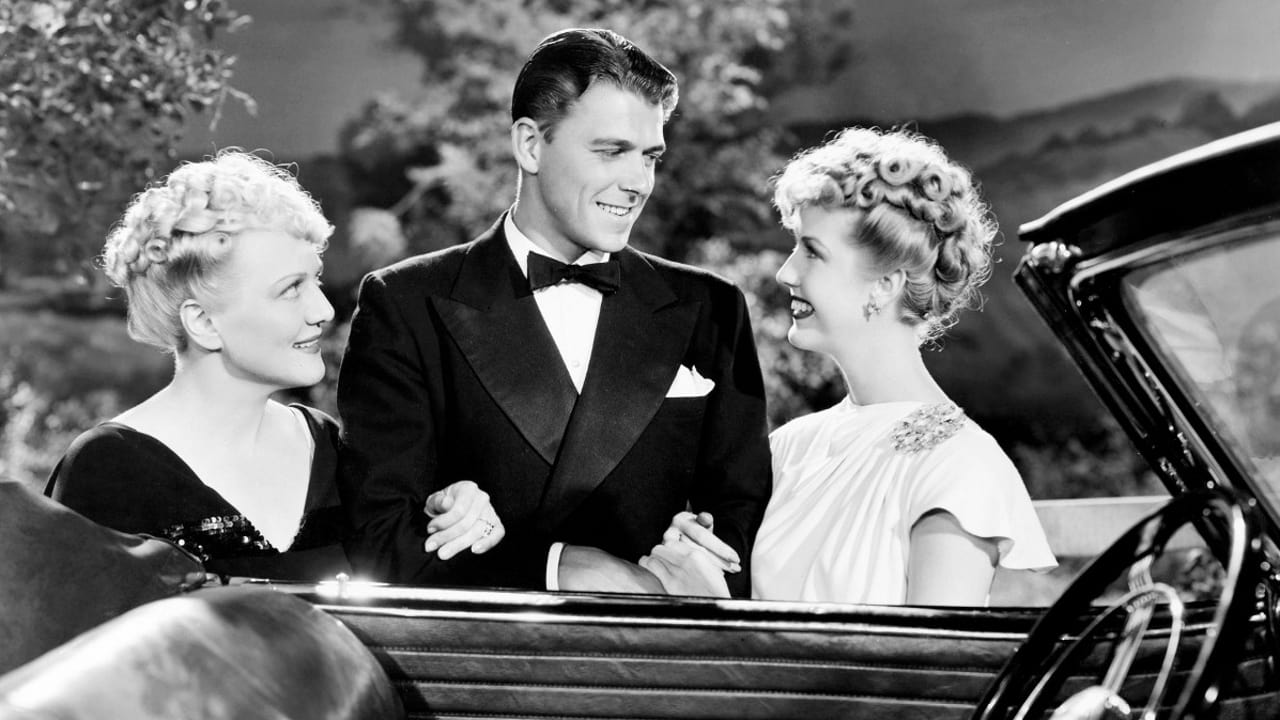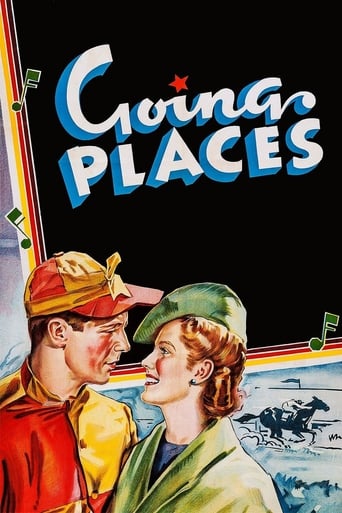



Stylish but barely mediocre overall
Great visuals, story delivers no surprises
The performances transcend the film's tropes, grounding it in characters that feel more complete than this subgenre often produces.
View MoreI wanted to like it more than I actually did... But much of the humor totally escaped me and I walked out only mildly impressed.
View MoreThis is a very forgettable though enjoyable little film that has a lot going for it as well as a lot to hate. It's a very mixed bag, that's for sure! First, what to like. Dick Powell plays a nice likable guy (as usual) and there is some decent comedy in the film. It's the sort of nice time-passer they made so well during the era--a mindless but fun little bit of escapism. Plus, you do get to see a very early performance by Ronald Reagan as well as Louis Armstrong. Of the two, Armstrong definitely comes off best, as his singing is great and you are left wondering why he didn't make more films during the 1930s. Reagan is there mostly as window dressing and has little to do. He's not bad, but also not particularly noticeable.Now for the bad. If you are looking for a film to show your politically correct friends or to show to a local chapter of the NAACP, keep looking! Most of the Black people in the film are the typical stereotypical happy singing idiots that Hollywood loved during the 30s and 40s. It's sad to see Louis Armstrong, for instance, forced to play such a demeaning part--he was better than this. Also, the plot itself was majorly lame--really, really lame! Many films back then loved the idea of an animal or athlete responding magically to music. Most often it's a particular tune that makes the animal/athlete respond. In this case, the horse 'Jeepers Peepers' responds when he hears the song named for him. In the case of the Three Stooges, it was 'Pop Goes the Weasel' that made Curly box like a madman. There are countless other examples, but regardless this is a terribly contrived and stupid story element. Finally, although it's not as big a concern, it was awfully dumb to have Dick Powell playing an Aussie--especially since he sounded less Australian than Louis Armstrong or the horse!! Still, despite these many bad parts of the film, there are many genuinely good moments and you can't help but like Powell--no matter how contrived it all is.
View MoreGoing Places was one of those films that made Dick Powell more determined than ever to get better parts or leave Warner Brothers. After one more film there, he did just that. Powell plays a sporting goods salesman in a department store and gets persuaded to impersonate a noted horseman and polo player who happens to be in Australia at the moment. Department store executive Walter Catlett is looking to market his wares among Maryland's horsey set and gets the bizarre notion to have Powell masquerade there. Catch is that just like in Cowboy from Brooklyn, Powell is deathly afraid of horses.I think you can see where the rest of this is going. It's in the tradition of race track comedies like A Day At the Races or It Ain't Hay. Of course those films were in the hands of comedians like the Marx Brothers and Abbott and Costello. Now Powell does look uncomfortable throughout and maybe his desperate wish not to be doing these kind of films translates into awkwardness. Powell was one of the most realistic at self assessment of his talents. He said himself he was not a national icon like Bing Crosby or creative like Fred Astaire. His days in musical films were numbered any way it was sliced. He had to break out or see his career go up the spout.But here in Going Places he wasn't even given anything good to sing. A few songs in the comic vein. The big hit number is Jeepers Creepers which sure was a big hit in 1938 and sung by the inimitable Louis Armstrong. Satchmo plays the groom of a horse named Jeepers Creepers who's one wild nag. Satch soothes the savage beast with his rendition of the song.Of course he endures some of the racial stereotyping of the day as well in the role. That could never have been to his liking, even to get a big song hit.Such Warner Brother veterans as Anita Louise, Allen Jenkins, Harold Huber and Ronald Reagan fill out the cast. Of his fellow contractees at Warner Brothers, Reagan for the rest of his life always singled out Pat O'Brien and Dick Powell as the most encouraging to a young player looking to rise.Only fans of the players named above should bother with this one.
View MoreThis pre-war comedy of impersonation and manners at a race course is amusing. Watching Louis Armstrong and hearing him sing the old standard, "Jeepers Creepers," makes the movie. Hollywood's casual acceptance of racial bias and denigration of blacks is cooly reflected by two race track gamblers addressing Armstrong as "Uncle Tom" when they meet him.
View MoreIt's easy to forgive the inane plot when the music and comedy are so much fun. First, there's the great Louis Armstrong singing and playing his trumpet in two songs, including the Oscar-nominated "Jeepers Creepers." He plays a horse groom, so what is he doing leading an all-black orchestra and a dozen or so black singers and dancers at a party? Never mind the incongruencies - just enjoy the big production number of "Mutiny in the Nursery." Louis is in good form in this early role. The comedy is mostly supplied by two masters of comedy, Allan Jenkins and Harold Huber, as likeable but inept crooks trying to eke out a living betting on horses. I was in stitches when they try to get Dick Powell to be a jockey in a race, and in desperation, Powell says he know nothing about horses (which is true) and writes songs (which is not). They insist he write a song then and there to convince them. While Powell and his boss, Walter Catlett, grope for words, they are the ones who supply most of the lyrics to "Oh, What a Horse Was Charlie." It's one of the funniest scenes you will see in a 1930's movie, all done verbally without slapstick. Then, of course, there is Powell, impersonating a famous jockey as an advertising ploy, falling in love with Anita Louise, and winding up riding a dangerous horse in the Maryland Steeplechase even though his riding experience is practically nil. The horse is called "Jeepers Creepers" and runs well only when he hears the song of the same name. Powell can't possibly win the race after running outside the course for a while and taking a spill on one of the hurdles. Or can he?
View More